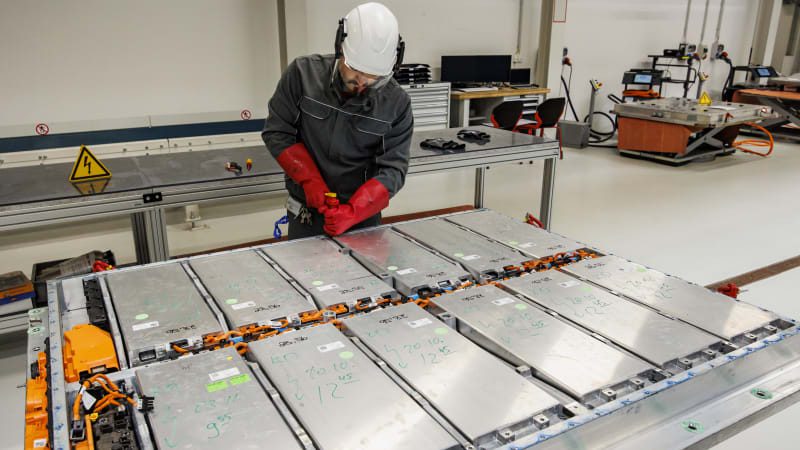VW to build first North American EV battery plant in Canada

WOLFSBURG, Germany — Volkswagen said on Monday it will build its first North American battery cell plant in Canada, granting its cars access to both Canadian and U.S. subsidies as it works to localize its electric vehicle production chain in the region.
Volkswagen confirmed in December it was looking for sites for a plant in Canada after it signed a memorandum of understanding with the country six months prior to secure access to key raw materials for batteries.
Canada, which is home to a large mining sector for minerals including lithium, nickel, and cobalt, is trying to woo companies involved in all levels of the EV supply chain via a multi-billion green technology fund to safeguard the future of its manufacturing heartland in Ontario as the world seeks to cut carbon emissions.
Cars with batteries from the plant will also qualify for thousands of dollars in subsidies under the U.S. Inflation Reduction Act, allocated to vehicles with a battery made with a minimum proportion of critical minerals extracted or processed in the United States or a country with a U.S. free-trade agreement, or recycled in North America.
The U.S. Treasury is due to release details on this guidance in March.
VW’s Monday’s announcement did not specify the size of the investment or the capacity of the new plant, but board member Thomas Schmall said in August the company was targeting 20 gigawatt hours of capacity at its first North American site.
Volkswagen has long said it is working towards setting up regional supply chains in Europe, North America and China for EV production in light of high transport and logistic costs, supply chain risks and geopolitical tensions.
It announced last week its Scout brand would build a $2 billion manufacturing plant near Columbia, South Carolina, for trucks and SUVs, with production to start in 2026.
The IRA gave the company an incentive to prioritize decisions on North American investments, it said last week, adding plans for battery plants in Europe were still in place but that it would wait to see whether the IRA spurred Europe to offer better incentives. (Reporting by Victoria Waldersee and Jan Schwartz, Editing by Angus MacSwan, Kirsten Donovan)



